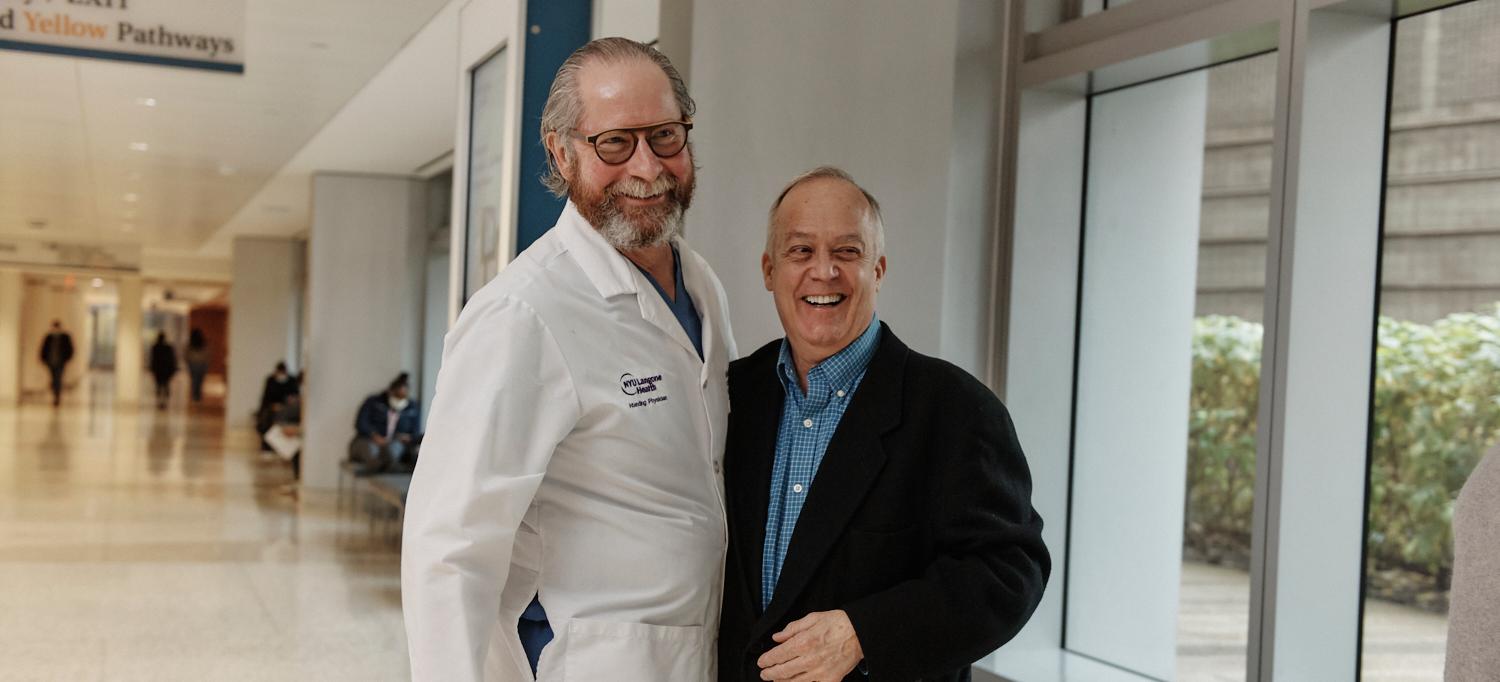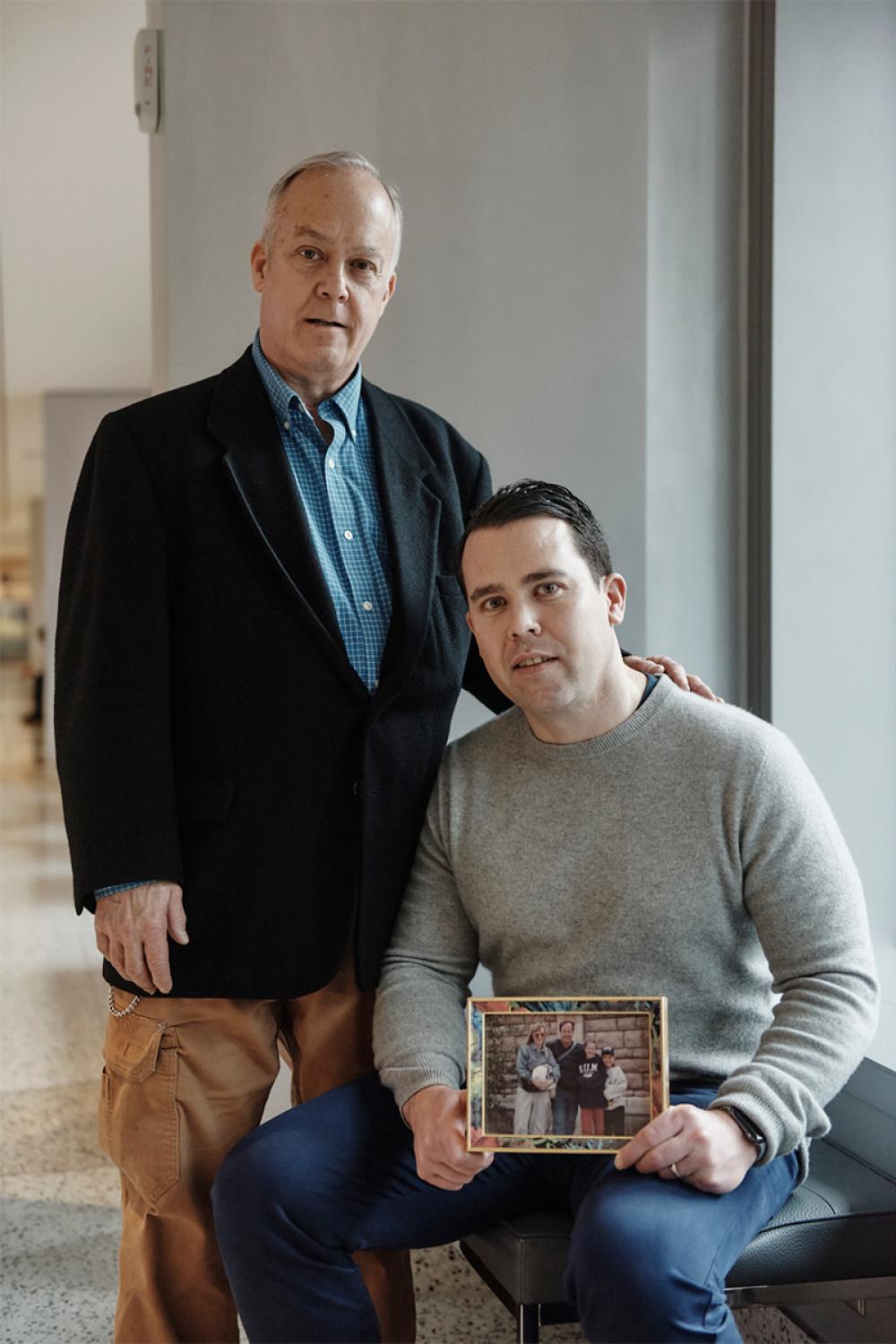
When Richard Capuano and his family were considering donating Alva’s body to science, it was a phone call from Dr. Robert Montgomery that convinced them to say yes. “When I heard Dr. Montgomery’s story of his own heart transplant, I understood how important this research was.”
Photo: Tony Luong
When Alva Capuano was discovered unconscious in her living room, her husband, Richard, and then paramedics did everything possible to get her heart beating again. But by the time it did, her brain had experienced irreversible damage. Her family accepted that Alva, 64, was gone. Their sorrow fueled a determination to fulfill her last wish: As the recipient of a donated pancreas and kidney, Alva had hoped to become an organ donor herself.
Alva’s heart was kept beating with the aid of a ventilator while the family worked with LiveOnNY, a nonprofit transplant matchmaker, to find a recipient for her organs. Hours and days went by, but no matches were found. The chance for Alva to save the life of someone else seemed to dim—until an unprecedented phone call.
Robert Montgomery, MD, DPhil, director of the NYU Langone Transplant Institute, explained to Alva’s family that instead of donating individual organs, they could donate her entire body to science. She would become the second recipient of a genetically modified pig heart, the next vital step in groundbreaking research at NYU Langone to find an alternative source for heart transplants. “If no one would have to die waiting for a heart transplant, imagine the impact Alva’s life would have on so many other lives,” Dr. Montgomery explained.
Alva’s son Tim knew this opportunity would mean everything to his mother. “We all agreed that my mom would be happy to know that she could contribute to a thing that was so much bigger than herself,” he says.
On July 6, 2022, four days after she was declared brain-dead, Alva became NYU Langone’s second heart xenotransplant recipient. The first such procedure, just a month before, had been a success, with the recipient of a genetically modified pig heart surviving for 72 hours without any signs of organ rejection. This follow-up procedure would confirm that the results were replicable.
The xenotransplant surgical team was led by Nader Moazami, MD, and Alex Reyentovich, MD, the surgical and medical directors of heart transplantation, respectively, at the Transplant Institute. Alva’s pig heart xenotransplant functioned normally immediately.
“The fact that the body did not reject the organ shows that the innate immune system, which is the first line of defense, was not triggered, and the genetic modifications were successful,” says Dr. Montgomery. “Seeing a pig heart pounding away inside of the chest of a human being is one of the most incredible things I have ever seen.” In addition, Alva didn’t need devices to keep the heart pumping—another sign that Alva’s body accepted the organ.
After three days, the team turned off Alva’s ventilator as planned, and her body shut down. The success of her surgery allows the research to move to the next phase: a 30-day trial in a brain-dead donor to see whether the adaptive immune system, the body’s second line of defense, rejects the organ.
Even though it’s still early days for pig heart transplants, to Dr. Montgomery, the impact of the Capuano family on the future of transplantation is immeasurable. “These studies have set in motion something that is going to change transplantation in a profound way,” he says. “Their gift is going to be multiplied many, many times.”
The Capuano family has set up a campaign to fund research into xenotransplantation. Learn more about donating.
